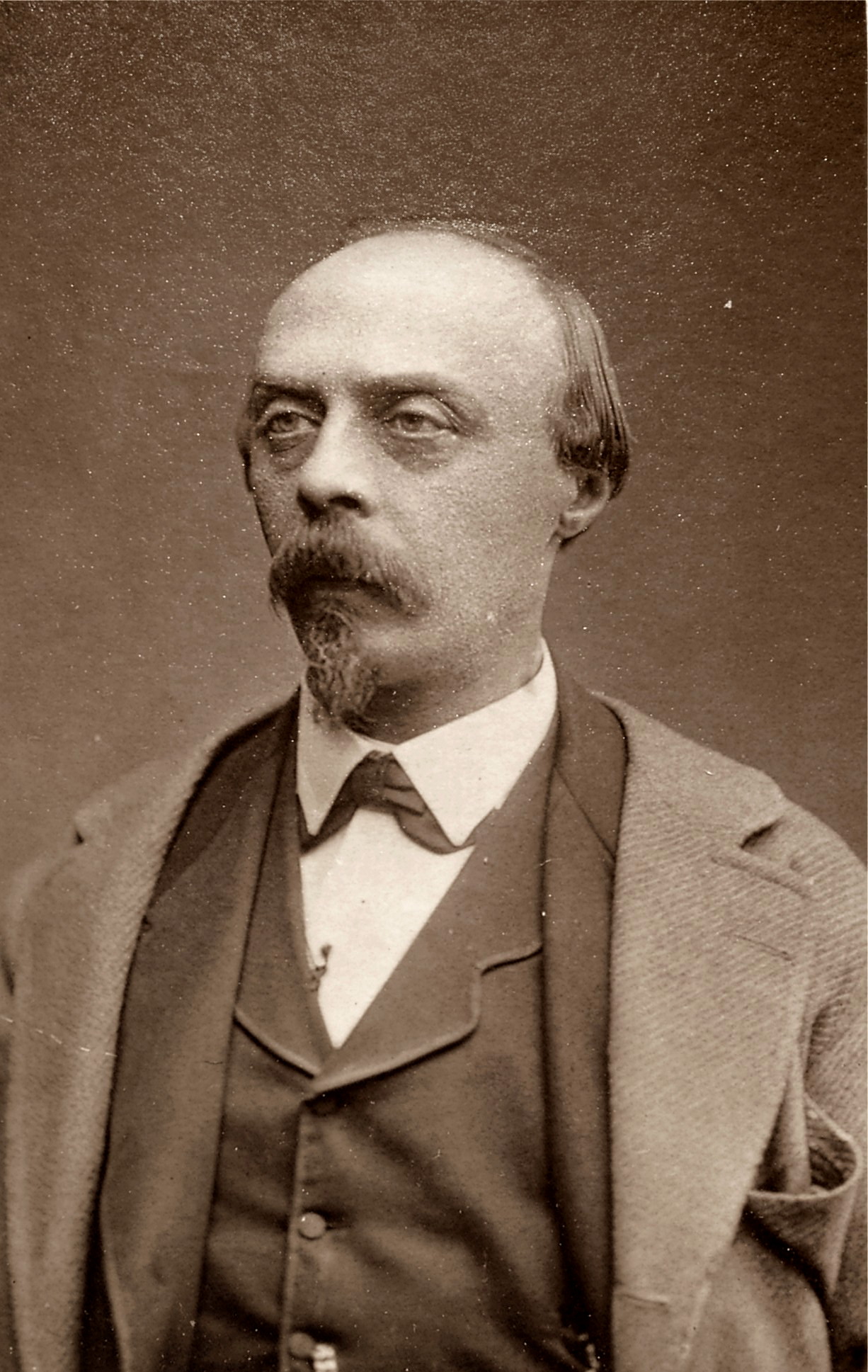Hans von Bülow
 Freiherr}} Hans Guido von Bülow (8 January 1830 – 12 February 1894) was a German conductor, pianist, and composer of the Romantic era. As one of the most distinguished conductors of the 19th century, his activity was critical for establishing the successes of several major composers of the time, especially Richard Wagner and Johannes Brahms. Alongside Carl Tausig, Bülow was perhaps the most prominent of the early students of the Hungarian composer, pianist and conductor Franz Liszt; he gave the first public performance of Liszt's Sonata in B minor in 1857. He became acquainted with, fell in love with and eventually married Liszt's daughter Cosima, who later left him for Wagner. Noted for his interpretation of the works of Ludwig van Beethoven, he was one of the earliest European musicians to tour the United States.
Provided by Wikipedia
Freiherr}} Hans Guido von Bülow (8 January 1830 – 12 February 1894) was a German conductor, pianist, and composer of the Romantic era. As one of the most distinguished conductors of the 19th century, his activity was critical for establishing the successes of several major composers of the time, especially Richard Wagner and Johannes Brahms. Alongside Carl Tausig, Bülow was perhaps the most prominent of the early students of the Hungarian composer, pianist and conductor Franz Liszt; he gave the first public performance of Liszt's Sonata in B minor in 1857. He became acquainted with, fell in love with and eventually married Liszt's daughter Cosima, who later left him for Wagner. Noted for his interpretation of the works of Ludwig van Beethoven, he was one of the earliest European musicians to tour the United States.
Provided by Wikipedia
Showing 1 - 8 results of 8 for search 'Bülow, Hans', query time: 0.03s
Refine Results
-
1
Hans von Bülow's letters to Johannes Brahms : a research edition by Bülow, Hans von, 1830-1894
Published 2012Call Number: Loading…Full text (MCPHS users only)
Located: Loading…
Electronic eBook -
2
Battle of the Titans
Published 1993Other Authors: “…Bulow, Hans…”
Call Number: Loading…Full text (MCPHS users only)
Located: Loading…
Electronic Video -
3
Energy conspiracy
Published 1999Other Authors: “…Bülow, Hans…”
Call Number: Loading…Full text (MCPHS users only)
Located: Loading…
Electronic Video -
4
Continent that overslept : Africa
Published 1998Other Authors:Call Number: Loading…Full text (MCPHS users only)
Located: Loading…
Electronic Video -
5
Ships of shame
Published 2001Other Authors:Call Number: Loading…Full text (MCPHS users only)
Located: Loading…
Electronic Video -
6
Chemical kids
Published 2001Other Authors: “…Bülow, Hans…”
Call Number: Loading…Full text (MCPHS users only)
Located: Loading…
Electronic Video -
7
The toxin that will not die
Published 2001Other Authors:Call Number: Loading…Full text (MCPHS users only)
Located: Loading…
Electronic Video -
8
Endgame Europe
Published 1996Other Authors: “…Bülow, Hans…”
Call Number: Loading…Full text (MCPHS users only)
Located: Loading…
Electronic Video
Search Tools:
Related Subjects
Environmental aspects
Chemical industry
Chemicals
Competition, International
Composers
Conductors (Music)
DDT (Insecticide)
Economic conditions
Economic policy
Employees
Environmental toxicology
Foreign economic relations
Fossil fuels
Global Warming
Global warming
Health and hygiene
Income distribution
Labor market
Physiological effect
Politics and government
Renewable Energy
Renewable energy sources
Scrapping
Shipbuilding industry
Ships
Social conditions
Toxicology
Unemployment
